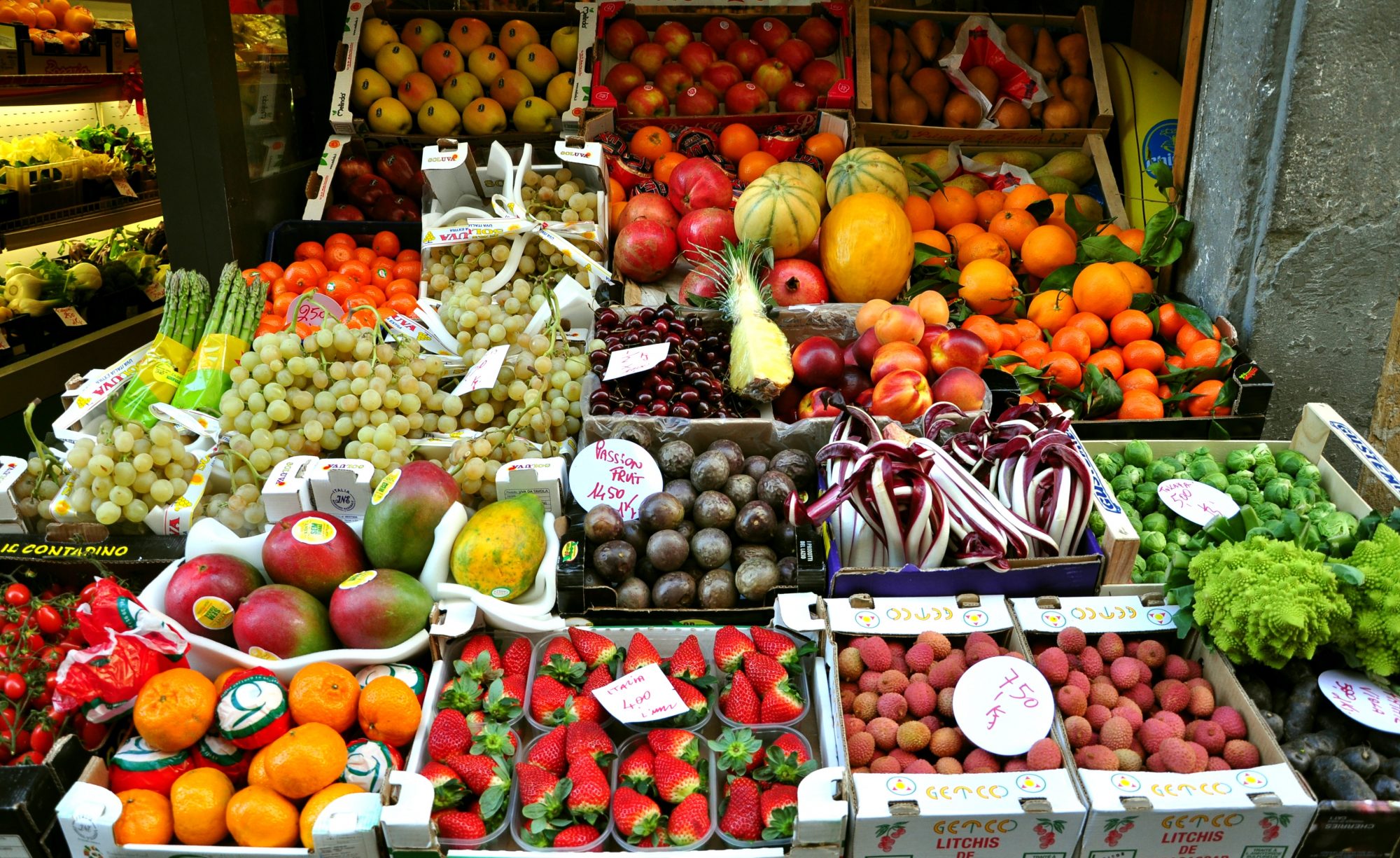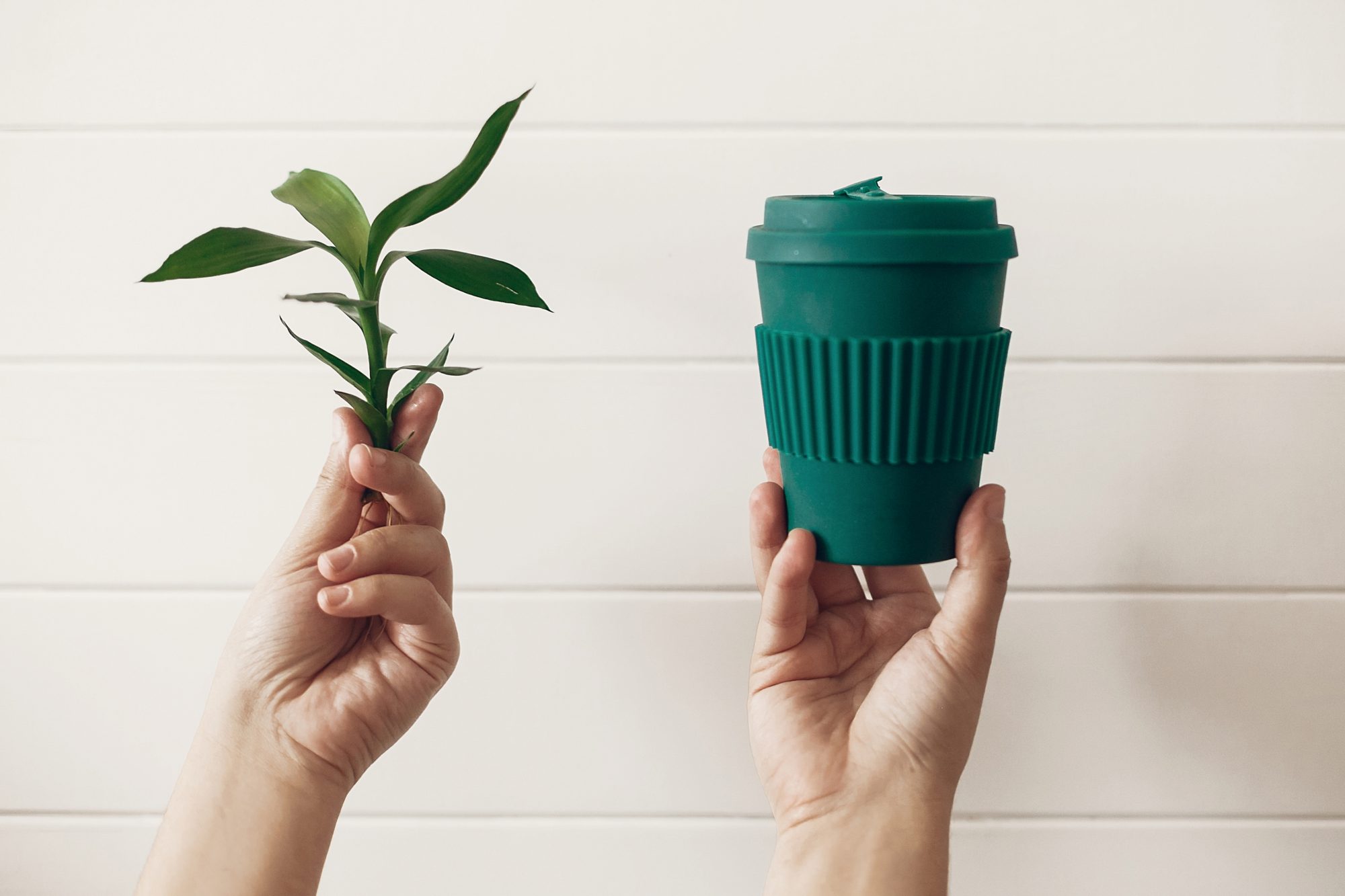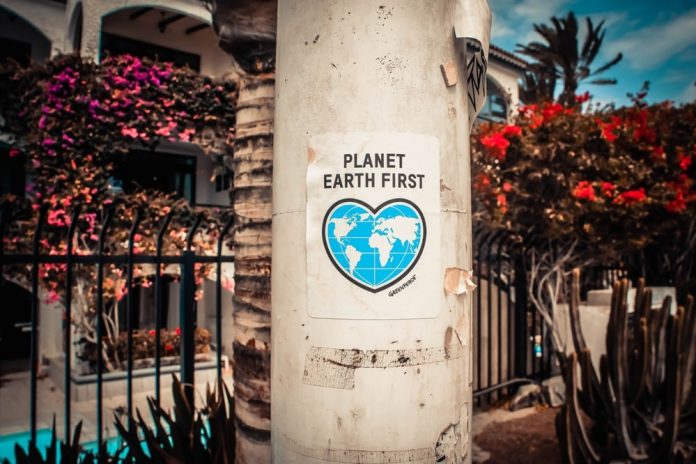Here, we cut through the confusion to discuss how you can realistically change your life to live a more sustainable 2020
The world is in dire straits, something that every living person should be aware of at this point. However, it is only recently that people have been asking how they can make changes to live more sustainable in 2020.
The attitude of ‘what’s the point, I can’t make a difference on my own’ or ‘oh it isn’t THAT bad’ has evolved to a ‘how can I actually make a difference?’. More and more are becoming eco-aware, altering their way of life to have less of a negative impact on the planet.
So, what can you do to lessen your carbon footprint and prepare for a more sustainable 2020?
Even the smallest of changes is a step in right direction. Here are just five simple steps you can take to help the planet next year.
1. Become food conscious
In the UK we are spoilt for choice, it doesn’t occur to many that certain foods go in and out of season because of the year-round availability in supermarkets. In fact, over a quarter (26%) of global greenhouse emissions are food related. So, the first step towards becoming a more sustainable individual in 2020 is to become food conscious. What does this entail?
Choose food in season and locally
As mentioned above, we have the privilege of accessing exotic and out of season food all year round thanks to international imports. However, this luxury involves using energy gobbling means to grow food in different climates.
Avocados for example, not native to this country, have dramatically increased in popularity over the last decade. Eating just one-two avocados per week for a year uses the same amount of energy as it takes to heat an average UK home for two days and uses 3,519 litres of water, which is equal to 54 showers lasting eight minutes.
As much as we may love a cheeky strawberry in winter, the cost of producing these strawberries out of season abroad far outweighs their taste. Almost half of the food we consume in the UK is imported; this means there is over half grown right here, and these are the foods consumers should be purchasing to lessen their carbon footprint.
Avoid plastic wrapped food
This can be difficult when the food you want comes wrapped in plastic, but did you know it is usually cheaper to buy the equivalent amount from the loose food selection?

A netted trio of three red onions from Sainsburys costs £0.95 and the plastic net cannot be recycled, whereas buying four loose onions comes to around £0.85 – simply bring your own reusable bags to hold them and avoid wasting plastic. People use ready wrapped food out of convenience, but spending an extra couple of minutes making mindful decisions will rack up your eco-points.
Similarly, you could avoid the supermarkets altogether. If you have the availability and time, why not nip to the local farm shop or market? There is usually a great selection of locally grown produce that isn’t pre-wrapped.
Swap one meat meal a week
Suggesting the world turn to veganism is unrealistic and unfair for those that simply enjoy eating a varied diet which includes meat. However, swapping just one meat meal a week for something vegan friendly will lessen the impact your diet has on the planet.
More than half of the world’s food emissions come from animal derived products, with beef and lamb being the biggest culprits. Before preparing that mid-week Bolognese, switch out the beef mince for a meatless substitute, or even use lentils. This way you are still getting the sustenance that will leave you full but reducing the amount of carbon your food is producing, for a more sustainable 2020.
2. Switch to reusable
The UK was mildly inconvenienced in October 2015 when the government put a 5p charge on single use carrier bags in shops. People quickly started to bring their own bags, rather than paying 5p for one at the shops. This has been an excellent move, from the big seven supermarkets in the UK sales of plastic bags are down by 86%, which has also resulted in a 50% reduction in plastic bag marine litter.
But it isn’t all about bags, there are loads of reusable options that take a simple switch but add up to a big difference.
Bottles and coffee cups
2020 is the year you say no to bottled water. Water is being sold in cartons, cans and glass bottles in order to tackle the issue of people purchasing plastic bottles. Unfortunately, this still creates a product that, if not properly recycled, still contributes to the world’s waste. Instead, purchase reusable bottles and refill.

There is a scheme, Refill, spreading across towns and cities that gives businesses the chance to opt in for free water refills. This alone has saved 14 million bottles being purchased. You can download their app to see your closest refill station.
Similarly, switching to a reusable coffee cup is a simple daily change that equates to a big difference. The average person in the UK visits a coffee shop at least once a week, this is equal to 52 cups a year, each taking over 30 years to decompose in landfill. Most large, and some small, coffee shops offer a discount when a reusable cup is used for an order. This means not only are you saving the planet but also saving money as well.
Personal health and grooming
People do not usually want to compromise when it comes to their personal grooming and hygiene but there are options that are as good as their disposable counterparts and better for the world.
Razors: Swap your single use twin blade razor for one that allows you to change the heads or blades. There are a few options that even offer a bamboo handle, making the entire item recyclable and sustainable.
Toothbrushes: Once an old toothbrush has worn down nobody thinks twice before chucking it in the bin, how many of your toothbrushes do you think are still on landfill? Opt for a bamboo toothbrush, making this disposable item compostable at the end of its life.
Make-up wipes/cotton pads: In most cases a flannel would do the same job of these non-environmentally friendly choices, however, those looking after their delicate eye areas may instead prefer to purchase some reusable cotton pads to take off their eye makeup. Simply use once with your makeup remover and stick it in the wash.
3. Say no to fast fashion

Fast fashion is this and next year’s plastic bag. The spotlight is fully on the fashion industry and their contribution to waste for a more sustainable 2020. Discarded clothing made from non-biodegradable fabrics, such as polyester, can sit in landfills for up to 200 years. This issue has been escalated by the fact 60% more clothing was bought in 2014 than in 2000, yet each piece purchased was kept for half as long.
Consumers are replacing clothes quicker than ever before, which is the reason behind the label fast fashion. It is predicted that to keep up with current demand the western fashion industry will produce 3030 million metric tons of CO2 emissions by 2025, a 77% increase from 2015.
To ensure this prediction does not become a reality people must consider keeping their clothing longer and using second hand sources to purchase items. Charity shops, Depop and eBay are excellent places to find barely worn or even unworn pieces that people are selling on. Their loss can be your gain without having to contribute to the CO2 emissions.
Not everything you wear needs to be a hand-me-down, trading a few hauls at your favourite shops for a couple of second hand pieces is a positive lifestyle change the earth will thank you for.
4. Eco-friendly phone
After your phone contract is up, do you research the ways you can sustainably dispose of your old phone? Or does the excitement of getting the latest model cause you to throw your own phone in drawer to collect dust? Statistics suggest the latter is probably true, with an estimated 125 million forgotten phones gathering dust in drawers.
It is true that while in drawers these phones are not contributing to the 50 million tons of annual of global e-waste, but without being refurbished and entering a circular economy, they are depreciating in worth; meaning when they eventually leave the drawers they are likely to land straight in the bin.
So what can you do? You can opt for a more ethical provider such as Raylo who take old phones back at the end of the contract, removing the liability of the old model’s fate from the consumer. They will then ensure the phones are either recycled for parts or refurbished and passed on to the next user.
Each Raylo phone also comes with a full compostable Pela case which erases the users’ need to purchase plastic phone cases to protect their devices.
Research what steps your providers are making to be more sustainable when your current contract is up.
5. Change up your transport
Not every distance is conveniently walkable, sometimes we need to get from A to B in a certain amount of time, or the weather is too bad to take a walk… but there are other modes of transport that can be explored for a more sustainable 2020.

Instead of using your car to get to and from work every day, or to the city for a shopping trip, could you take a bus, the train or even cycle? Not only will this save on emissions but it also reduces the amount of times you fill up your car, wear and tear on the vehicle, time wasted in traffic and so on.
Although these transport types emit their own gases into the air, 100 people taking a train to get to London has less of a detrimental impact than 100 people driving their cars to London.
For example, a diesel car travelling 652km will produce 115KG of CO2 and a petrol car travelling the same distance will burn 120kg of CO2, but a train only burns 30kg of CO2 making the same journey, according to the energy saving trust.
These steps don’t have to be all or nothing.
Whether a train ride here or a meatless dish there, any conscious effort to change bad habits and become more eco-aware is a constructive step towards preserving the planet.











